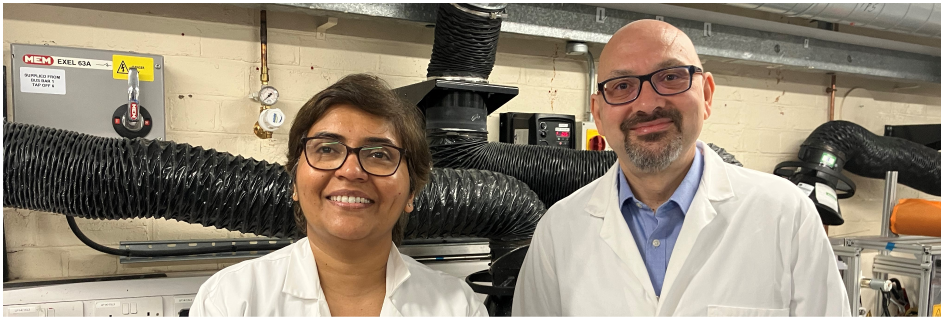Post date:
Engineering researchers have won a £125k grant from investment company Greencoat UK Wind to develop their innovative wind turbine recycling process.
Professor Vasileios Koutsos and Dr Dipa Roy are developing a technique to turn old wind turbine blades into powders that could be used to protect engineering and structural components, including new wind turbine blades.
Wind energy is a critical part of the renewable energy mix being harnessed in the UK’s drive to net zero, but the question of how to recycle wind turbine blades at the end of their 20-25 year lifespan continues to pose an engineering and environmental challenge.
Wind turbine blades are usually huge structures, made from a complex composite of materials bonded together by a strong adhesive known as epoxy, and reinforced with fibres – making them difficult and expensive to separate and recycle.
Professor Koutsos and Dr Roy, from the School of Engineering, have devised a method to turn decommissioned blade materials into powders that could be used in surface coatings, to protect engineering and structural components from corrosion and erosion by the elements.
They have received funding from Greencoat UK Wind, an investment trust specialising in renewable energy infrastructure, for a 12-month research project – ‘Added-value CoatTings’ (ACT) – to develop the process.
The coating produced would help protect new wind turbine blades from erosion caused by raindrops and other particulates. It could also be used in the built environment, for example to prevent corrosion on the cables of suspension bridges.
The project is being supported by the University of Edinburgh’s commercialisation service, Edinburgh Innovations, who helped secure the funding.



